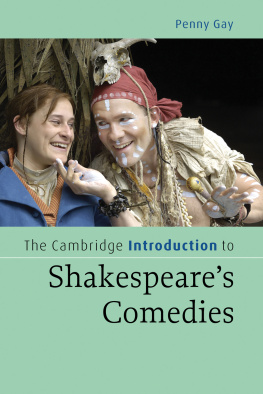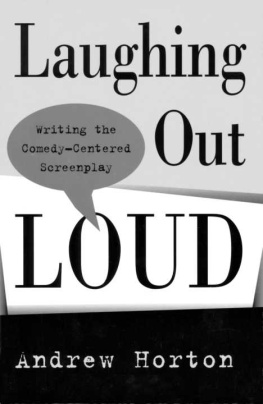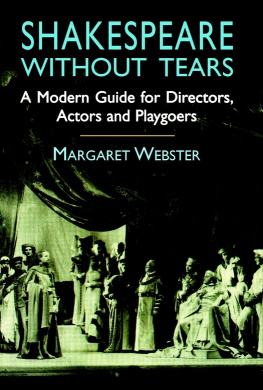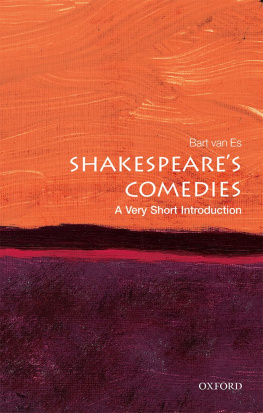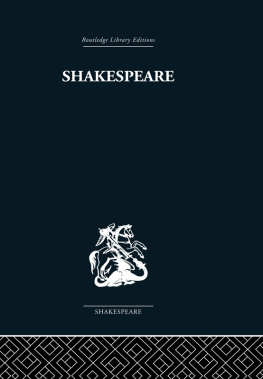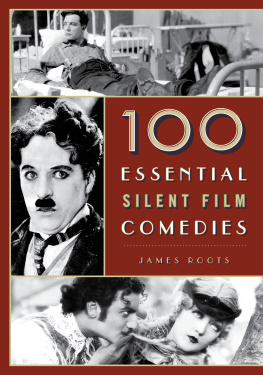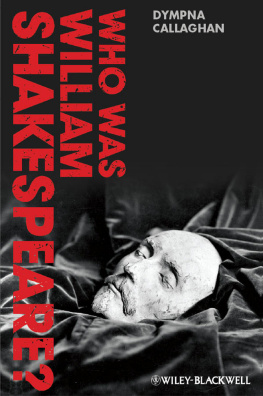The Cambridge Introduction to
Shakespeares Comedies
Why did theatre audiences laugh in Shakespeares day and why do they still laugh now? What did Shakespeare do with the conventions of comedy that he inherited, so that his plays continue to amuse and move audiences? What do his comedies have to say about love, sex, gender, power, family, community, and class? What place have pain, cruelty, and even death in a comedy? Why all those puns? In a survey that travels from Shakespeares earliest experiments in farce and courtly love-stories to the great romantic comedies of his middle years and the mould-breaking experiments of his last decades work, this book addresses these vital questions. Organised thematically, and covering all Shakespeares comedies from the beginning to the end of his career, it provides readers with a map of the playwrights comic styles, showing how he built on comedic conventions as he further enriched the possibilities of the genre.
PENNY GAY is Professor of English and Drama at the University of Sydney.
Cambridge Introductions to Literature
This series is designed to introduce students to key topics and authors. Accessible and lively, these introductions will also appeal to readers who want to broaden their understanding of the books and authors they enjoy.
Ideal for students, teachers, and lecturers
Concise, yet packed with essential information
Key suggestions for further reading
Titles in this series
H. Porter Abbott The Cambridge Introduction to Narrative (second edition)
Eric Bulson The Cambridge Introduction to James Joyce
Warren Chernaik The Cambridge Introduction to Shakespeares History Plays
John Xiros Cooper The Cambridge Introduction to T. S. Eliot
Patrick Corcoran The Cambridge Introduction to Francophone Literature
Gregg Crane The Cambridge Introduction to the Nineteenth-Century American Novel
Kirk Curnutt The Cambridge Introduction to F. Scott Fitzgerald
Janette Dillon The Cambridge Introduction to Early English Theatre
Janette Dillon The Cambridge Introduction to Shakespeares Tragedies
Penny Gay The Cambridge Introduction to Shakespeares Comedies
Jane Goldman The Cambridge Introduction to Virginia Woolf
Kevin J. Hayes The Cambridge Introduction to Herman Melville
Nancy Henry The Cambridge Introduction to George Eliot
Leslie Hill The Cambridge Introduction to Jacques Derrida
David Holdeman The Cambridge Introduction to W. B. Yeats
Adrian Hunter The Cambridge Introduction to the Short Story in English
C. L. Innes The Cambridge Introduction to Postcolonial Literatures
M. Jimmie Killingsworth The Cambridge Introduction to Walt Whitman
Pericles Lewis The Cambridge Introduction to Modernism
Ronan McDonald The Cambridge Introduction to Samuel Beckett
Wendy Martin The Cambridge Introduction to Emily Dickinson
Peter Messent The Cambridge Introduction to Mark Twain
David Morley The Cambridge Introduction to Creative Writing
Ira Nadel The Cambridge Introduction to Ezra Pound
Leland S. Person The Cambridge Introduction to Nathaniel Hawthorne
John Peters The Cambridge Introduction to Joseph Conrad
Justin Quinn The Cambridge Introduction to Modern Irish Poetry
Sarah Robbins The Cambridge Introduction to Harriet Beecher Stowe
Martin Scofield The Cambridge Introduction to the American Short Story
Emma Smith The Cambridge Introduction to Shakespeare
Peter Thomson The Cambridge Introduction to English Theatre, 16601900
Janet Todd The Cambridge Introduction to Jane Austen
Theresa M. Towner The Cambridge Introduction to William Faulkner
Jennifer Wallace The Cambridge Introduction to Tragedy
The Cambridge Introduction to
Shakespeares Comedies
PENNY GAY

CAMBRIDGE UNIVERSITY PRESS
Cambridge, New York, Melbourne, Madrid, Cape Town, Singapore, So Paulo, Delhi, Dubai, Tokyo, Mexico City
Cambridge University Press
The Edinburgh Building, Cambridge CB2 8RU, UK
Published in the United States of America by Cambridge University Press, New York
www.cambridge.org
Information on this title: www.cambridge.org/9780521856683
Penny Gay 2008
This publication is in copyright. Subject to statutory exception and to the provisions of relevant collective licensing agreements, no reproduction of any part may take place without the written permission of Cambridge University Press.
First published 2008
A catalogue record for this publication is available from the British Library
Library of Congress Cataloguing in Publication data
Gay, Penny, 1945
The Cambridge introduction to Shakespeares comedies / Penny Gay.
p. cm. (Cambridge introductions to literature)
Includes bibliographical references and index.
ISBN 978-0-521-85668-3 (hardback) ISBN 978-0-521-67269-6 (pbk.)
1. Shakespeare, William, 15641616 Comedies. 2. English drama (Comedy) History and criticism. I. Title. III. Series.
PR2981.G39 2008
822.33 dc22 2007050651
ISBN 978-0-521-85668-3 Hardback
ISBN 978-0-521-67269-6 Paperback

Cambridge University Press has no responsibility for the persistence or accuracy of URLs for external or third-party Internet Web sites referred to in this publication, and does not guarantee that any content on such Web sites is, or will remain, accurate or appropriate. Information regarding prices, travel timetables, and other factual information given in this work are correct at the time of first printing but Cambridge University Press does not guarantee the accuracy of such information thereafter.

Contents
Preface
Why did audiences laugh in Shakespeares day, why do they still laugh now? What did Shakespeare do with the conventions of comedy that he inherited, so that his plays continue to amuse and move audiences? What do his comedies have to say about love, sex, gender, power, family, community, and class? What place have pain, cruelty, and even death in a comedy? Why all those puns?
These questions have fascinated me for at least thirty years of my professional life. I am grateful to Sarah Stanton for the opportunity finally to explore them and to begin to map out their connections. I must also thank my colleagues at the University of Sydney, particularly the members of the Early Modern Literature and Culture group, for providing clues and answers to odd matters. Kirsten Tranter was an imaginative and thorough research assistant, and I have enjoyed many illuminating conversations with drama specialists Kate Flaherty and Margaret Rogerson.
My daughter Virginia Gay read the whole book from the double perspective of Shakespeare enthusiast and professional actress; I am profoundly grateful for her insights and her insistence on clarity. As my test reader, she kept me to the books aim: simply to help twenty-first-century readers, theatre-goers, and actors find their bearings and increase their enjoyment of plays which as Duke Theseus says need no excuse.
Quotations from Shakespeares plays are from the individual editions of the New Cambridge Shakespeare, wherever possible; other editions, where used, are indicated in the notes.
Next page
